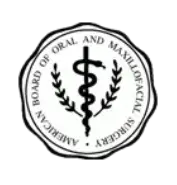Making the Most of Your Smile: Healthy Habits that Protect Your Teeth
The benefits of good dental hygiene may start with a gorgeous smile, but they extend to promoting your confidence and your physical health on many levels. Good oral health helps make you feel great not only physically, but it also assists in making you feel good about yourself when you have a fresh smile. If your teeth aren't taken care of properly, this can lead to a number of irritations and infections, some of which could cause serious medical issues if left untreated. However, practicing basic dental hygiene can increase your overall wellbeing and make your smile stand out.
Making the most of your smile with healthy habits to protect your teeth only takes a few minutes a day. Here's how you can make your smile the healthiest - and most noticeable - in the room.
Start with the basics
To make the most of any smile, using basic dental practices like brushing your teeth daily can help prevent plaque build-up, which leads to cavities and potential gum disease. Depending on what toothpaste you use and what your dentist recommends, daily brushing can also help whiten your smile so that it looks nice and clean.
Using mouthwash to gargle with can also help reduce and kill harmful bacteria that may be lurking in hard to reach spots. This is great for preventing tooth decay and can get between your teeth and under your tongue.
Water pik vs. flossing
If you've heard the long-running debate on whether a water pik is better than flossing, we've got the answers for you. The truth is that both options are great and provide you with similar benefits.
Both flossing and a water pik help remove plaque. However, water piks are especially beneficial for people who wear braces, and for those who have non-removable bridgework, implants, or crownwork. Compared to flossing, a water pik enables people with braces or this type of dental work to still clean away bacteria and other particles since string flossing may be a little more difficult to maneuver.
The downside is that water piks are a little less accurate than regular flossing. With a water pik, you may not be able to get rid of all the plaque that's settling on and around your teeth, and it can be a little messy when you're first trying to figure out how to aim and what specific pressure level to use.
Flossing is a beneficial practice to build a habit out of because it allows you to work on each tooth in full, helping you thoroughly clean away bacteria and plaque before it turns into tartar.
Both options are great for removing plaque, and rather than choosing one over the other, utilizing both can ensure a clean and healthy smile.
Should I brush multiple times a day?
It's true that brushing your teeth at least twice a day can prevent plaque build-up and the settling of bacteria. Plaque only needs 48 hours to fully harden, so brushing roughly an hour after eating a good meal is recommended as it doesn't give bacteria the time to grow.
While brushing, ensure you're using a toothbrush that's less than 3-4 months old. Once a brush begins to have frayed bristles, it's less accurate on keeping bacteria from growing and can be more harmful than good. Forgetting to replace your toothbrush regularly increases the likelihood you will be leaving plaque or bacteria behind.
Am I brushing too hard?
Finding the perfect balance in pressure when brushing can feel frustrating. You don't want to lightly brush and miss out on removing dangerous bacteria, but you also don't want to brush so hard that you damage your gums or cause bleeding. It's recommended that you gently press your brush against the base of your teeth and the edges of your gums. As you brush, you can move side to side, up and down, and in circular motions to ensure you're touching all areas. This isn't only good for removing particles but it also helps encourage the blood circulation in your gums and around your teeth.
Foods to avoid
As much as we all have our guilty pleasures with food, some can be a nightmare for our teeth if consumed too frequently. From alcohol to candy, soda, and more, different foods and beverages contain acids that are harmful to our oral health. While indulging from time to time in your favorite treat is completely fine, you may want to avoid these foods if you're trying to improve your dental health or have an oral infection you're trying to treat.
Number one on the list to avoid? Acidic foods to avoid in large quantities, like:
- Sour candies - Many sour candies are filled with acids and are chewy. When you eat them this leaves behind build-up on your teeth that can be more difficult to remove, often allowing sugar to erode your enamel and encourage tooth decay.
- Bread - Believe it or not, when you're chewing, your saliva breaks down the starches in bread and turns it into sugars that can increase plaque levels.
- Oranges, grapefruits, and citrus-based products - These items are often rich in Vitamin C but their acid content erodes enamel, which makes your teeth more susceptible to decay.
There are various other foods, treats, and beverages you can limit your consumption of in order to improve the health of your smile.
Have questions or need a little extra help with your smile? We're here to provide expert support and care? Contact us today for more advice on what you can do to make the most of your smile and improve your oral health.






4.9 Stars
based on 134 reviews
5 Stars
based on 11 reviews
5 Stars
based on 11 ratings